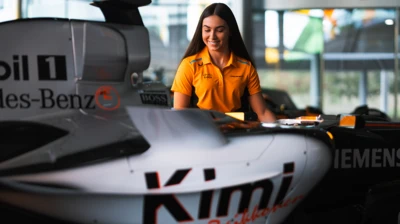We've updated our Privacy and Cookies Policy
We've made some important changes to our Privacy and Cookies Policy and we want you to know what this means for you and your data.
Reptiles housed by Jersey Zoo after oil spill reproduce
Image source, Ben Birchall/PA Wire
- Jersey Zoo took in the animals after the Ile aux Aigrettes oil spill
- Conservationists said the animals had to be sent away because here was no local biosecurity centre
- The lesser night geckos, Bojer’s skinks and Bouton’s skinks have produced more than 100 offspring
- Those involved in the rescue said they were "so happy" the animals had been able to breed
Geckos and other reptiles saved after an Indian Ocean island was hit by an oil spill have reproduced at Jersey Zoo, producing more than 100 offspring, staff have said.
The zoo took in the animals after the incident in July 2020 on Ile aux Aigrettes, just off Mauritius.
More than 1,000 tons of oil spilled into the coastal water when the Japanese ship MV Wakashio strayed off course and struck a coral reef about one mile (1.6km) offshore.
In total, the Durrell Wildlife Conservation Trust said 66 reptiles, including 30 lesser night geckos, 30 Bojer’s skinks and six Bouton’s skinks, were rescued from oil-affected islets in the southeast of the affected area and brought to Jersey in September 2020 to be cared for by reptile specialists.
Spill effects 'unknown'
The zoo said that allВ the geckos and all but three of the skinks had produced offspring so far.
It said: "To date, we have 50 geckoВ offspring,В 47 Bojer’s skinkВ offspringВ and four Bouton’s skink offspring."В
It said the animals would "be returned ... where they were originally collected from once we have ascertained the full impact of the oil spill on the islets’ systems and that it is safe to do so".
It added: "Currently the impact of the oil spill on the long-term survival of the reptiles and their plant and invertebrate food sources is unknown, and it might be in a couple or in 20 years’ time."
Rose Marie Pierre, who works as a tour guide and with the Mauritian Wildlife Foundation, said: “We had to send them to Jersey Zoo because we didn’t know what would happen here and we don’t have a biosecurity centre where we could keep them."
She added that the news of them reproducing had "made us so happy".
Top Stories
More to explore
Most read
Content is not available








